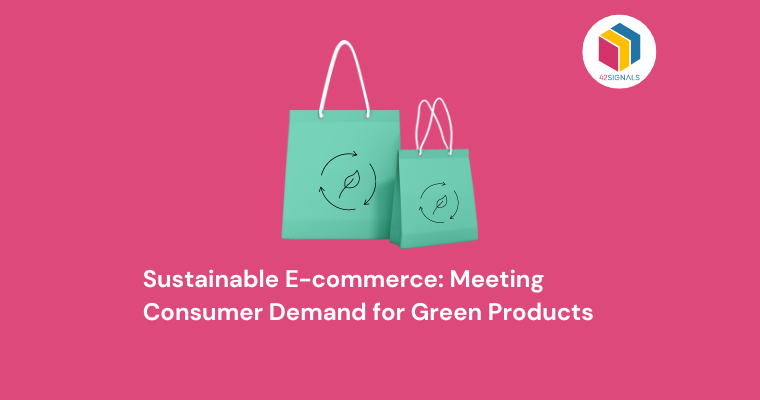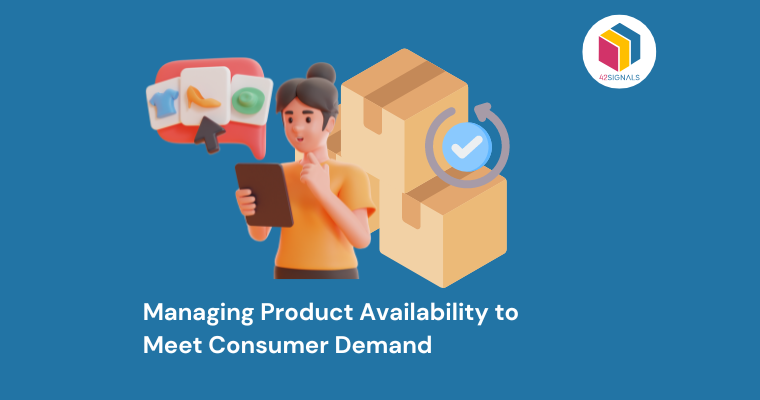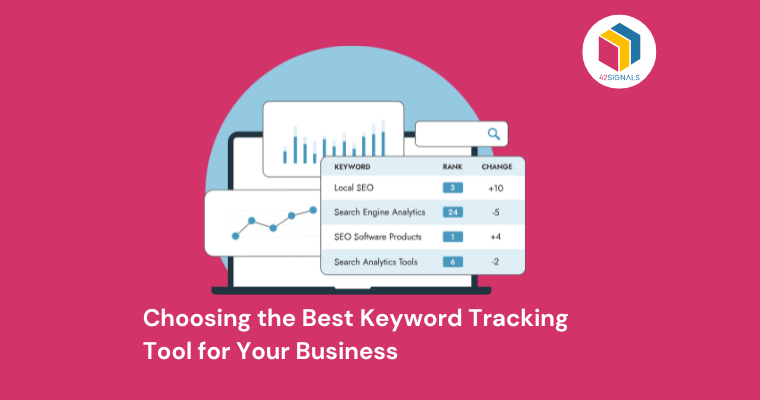Sustainable e-commerce has shifted from being a far-fetched dream to a near reality. With the global warming crisis, fast fashion depleting natural resources, and the abundance of waste, putting more products out without thought or consideration isn’t the answer.

Image Source: LinkedIn
Understanding Consumer Demand for Green Products – Sustainable E-Commerce
Before implementing sustainable practices, it is crucial to understand why consumers are demanding green products. According to a study by Nielsen, 81% of global respondents feel strongly that companies should help improve the environment.
Additionally, a report by IBM Institute for Business Value found that 57% of surveyed consumers are willing to change their purchasing habits to reduce their environmental impact. These statistics show that there is a significant portion of consumers who are actively seeking out eco-friendly options when making purchases.

Image Source: Econlife
Therefore, incorporating sustainability into your e-commerce business can give you a competitive edge and appeal to this growing market segment.
Implementing Sustainable Practices in E-commerce
There are several ways e-commerce businesses can implement sustainable practices while still meeting consumer demand for green products. Here are some strategies to consider:
- Use Sustainable Packaging: One way to make your e-commerce business more sustainable is by using eco-friendly packaging materials such as recycled cardboard or biodegradable packing peanuts. This small change can significantly reduce waste and demonstrate your commitment to sustainability.
- Offer Carbon-Neutral Shipping: Another way to make your e-commerce business more sustainable is by offering carbon-neutral shipping options. Many shipping carriers offer programs that offset the carbon emissions from delivery trucks and planes. You can pass this cost onto the customer or absorb it yourself as part of your commitment to sustainability.
- Source Ethically Made Products: When selecting products to sell on your e-commerce platform, choose ones that have been made ethically and with sustainable materials. Look for certifications like Fair Trade, Rainforest Alliance, and Certified Organic to ensure that the products meet certain standards.

Image Source: Good News Network
- Implement Energy-Efficient Operations: Consider using energy-efficient lighting and appliances in your warehouse or office space. Also, look into renewable energy sources such as solar panels or wind turbines to power your operations.
- Encourage Recycling: Make it easy for customers to recycle any packaging material that comes with their orders. Provide clear instructions on how to properly dispose of each component of the package, including boxes, bubble wrap, and tape.
- Reduce Returns: While returns are sometimes necessary, excessive returns can create unnecessary waste and increase your carbon footprint. To reduce returns, provide detailed product descriptions, high-quality images, and size guides to ensure that customers know exactly what they are ordering.
Benefits of Sustainable E-commerce
By implementing sustainable practices in your e-commerce business, you can enjoy numerous benefits beyond just appealing to eco-conscious consumers. Some additional advantages include:
- Cost Savings: Using energy-efficient appliances and reducing waste can lead to cost savings over time. For example, switching to LED light bulbs can save up to 80% on electricity costs compared to traditional incandescent bulbs.
- Positive Brand Image: Embracing sustainability can enhance your brand image and reputation. Customers are more likely to trust and recommend brands that align with their values.
- Competitive Advantage: With increasing consumer interest in sustainability, adopting eco-friendly practices early on can give you a competitive advantage over other businesses in your industry.
- Regulatory Compliance: Governments around the world are introducing regulations aimed at reducing carbon emissions and promoting sustainability. Adhering to these guidelines now can help you avoid potential fines or penalties later.
In Summary
The trend towards sustainability is here to stay, and e-commerce businesses must adapt to meet changing consumer demands.
From using eco-friendly packaging to sourcing ethically made products, there are many ways to become a successful sustainable e-commerce business. Start taking steps today to build a greener future for both your business and our planet.
Frequently Asked Questions
What is sustainability in ecommerce?
Sustainability in e-commerce refers to designing and operating online businesses in a way that minimizes negative environmental impacts, promotes social responsibility, and creates long-term value for stakeholders. This can involve reducing energy consumption, decreasing carbon emissions, conserving natural resources, promoting fair labor practices, supporting circular economy principles, and engaging in transparent communication and reporting.
What are the most sustainable ecommerce brands?
Some notable sustainable e-commerce brands include Patagonia, Everlane, Allbirds, Bombas, Toms, and Honest Company. These companies have made commitments to reduce greenhouse gas emissions, minimize waste, promote transparency, and give back to communities. They serve as inspiration for other businesses looking to adopt more sustainable practices.
What are the most sustainable products?
The most sustainable products are those that are designed with durability, reusability, and recyclability in mind. For example, clothing made from organic cotton or recycled polyester, electronics built with modular designs that allow for easy repairs and upgrades, and household appliances engineered for energy efficiency.
What company is not sustainable?
It’s difficult to single out specific companies as unsustainable without conducting thorough research, as every organization operates differently and faces unique challenges. That said, it’s worth noting that large multinational corporations, particularly those in high-emission sectors like oil and gas, chemicals, and transportation, face particular scrutiny for their environmental and social impact.





